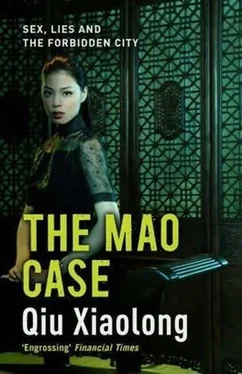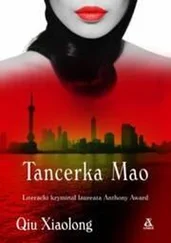“All are excuses for his crab craziness. Confucius says,” his son commented with a resigned shrug to the neighbors, “don’t believe him.”
Indeed, Aiguo had such a weakness, suffering a peculiar syndrome with the western wind rising in November, as if his heart were being pinched and scratched by the crab claws. He had to conquer the craving with “a couple of the Yangcheng river crabs, a cup of yellow wine,” and only then would he be able to work hard for the year, full of energy to throw himself into what ever “Confucius says,” until the next crab season.
Aiguo retired at the beginning of the economic reform. The price of crabs had rocketed and a pound of large crabs cost three hundred yuan. For an ordinary retiree like him, a pound of crab cost more than half of his monthly pension. Crabs became a luxury affordable only for the newly rich of the city. For the majority of the Shanghai crab eaters, like Aiguo, the crab season became almost a season of torture.
In the same shikumen house lived Gengbao, a former student of Aiguo’s. Gengbao hardly acknowledged Aiguo as his teacher, for he had flunked out of school, having received a number of Ds and Fs from Aiguo himself. As it is said in Taodejing, “In misfortune comes fortune”: because of his failure at school, Gengbao started his cricket business in the early days of the reform and became rich. In Shanghai, people gamble on cricket fights, so a ferocious cricket could sell for thousands of yuan. Gengbao was allegedly catching his most fierce crickets in a “secret cemetery,” where the crickets, having absorbed all the infernal spirits, fought like devils. Anyway, it proved to be a fabulous niche market for him. Despite all the money he made, however, he chose not to move away from this feng shui attic room of his, which he believed had brought his fortune, though he bought a new apartment somewhere else. In the old building, he still shared the common kitchen as well as a common passion with Aiguo: the crab. Unlike Aiguo, Gengbao could afford to enjoy crabs to his heart’s content, of which he made an ostensible show, parading crabs through the kitchen, nailing crab shells like monster masks on the wall above the coal briquette stove. Aiguo suffered all this, sighing and quoting from a Confucian classic, “It’s the teacher’s fault to have not taught a student properly.”
“What do you mean?” Aiguo’s daughter-in-law responded. “Gengbao is a Big Buck nowadays. Your ancestors must have burned tall incense for you to have such a successful student.”
If there was any cold comfort for Aiguo, it would be that he could talk about Confucius openly again. However, retired, he could give his lecture only to his grandson, Xiaoguo, a third-year elementary school student.
The array of the mysterious crab shells on the kitchen wall seemed to be more appealing than Confucius to Xiaoguo, who had never tasted a crab before.
“What does a crab taste like, Grandpa?”
It was an impossible mission for the retired teacher. There’s no tasting a crab without putting it into your mouth. Aiguo adored his grandson, and as Confucius says, “You have to do what you should do, even though it’s impossible to do so.” Finally, Aiguo managed to demonstrate how delicious a crab could be by concocting a special crab sauce of black vinegar, sugar, ginger slice, and soy sauce.
“It’s somewhat like that,” Aiguo said, letting Xiaoguo dip a chopstick into the sauce and suck on the tip, “but much better.”
Unexpectedly, that experiment developed for Aiguo into an ongoing pursuit of a way to satisfy the crab-craving. All the crab-rich memories had come back to him the moment that the chopstick tip touched his own tongue. He pushed the experiment further by stir-frying the egg yolk and white separately in a wok and mixing them with the special sauce. It resulted in a special dish richly redolent of the celebrated Fried Crab Meat at Wangbaoh restaurant. And to his surprise, small shrimp or dried tofu dipped in the special sauce could occasionally produce a similar effect too. On those days when he could not find anything in the refrigerator, which was under the strict surveillance of his daughter-in-law, he would simply dip the chopsticks in and out of the special sauce, sipping at his yellow wine, and chewing the ginger slices.
Needless to say, all the experiments added to the curiosity of the close-observing Xiaoguo.
“Living in a poor lane, and dipping in nothing but the crab sauce, one still enjoys life,” Aiguo said, seemingly absorbed in Confucius again, to his bewildered grandson. “Confucius says something very close to that about one of his best students.”
One day, on the way to school, Xiaoguo passed by a new house with the door open and caught sight of people busy making huge banquets of sacrifice to their ancestors. It had to be a rich family, with so many luxurious cars parked in front, and with scripture-chanting monks engaged from a Buddhist temple too. He could not help taking a closer look. To his surprise, he saw a crab scurrying out of the door to the sidewalk. It must have escaped from the kitchen in the midst of the hustle-bustle. No one paid attention to it. So Xiaoguo took off his hat and, like a streak of lightning, picked up the vicious-looking crab. Instead of going to school, he ran back home, prepared the special sauce after a fashion, and boiled the crab. After devouring it without really tasting it, he painted a multicolored face on the crab shell with a Chinese character beneath it – swear. He hung the shell like a primitive mask on the wall. When Aiguo came back, seeing the mask, and learning the story from Xiaoguo, who was still washing his hat in the sink, he snapped and slapped his grandson in fury.
“How can you skip school for a crab? Shame on you! And a stray crab from others’ offering to their ancestor too! That’s totally against the Confucian rites. What’s more, you put the crab in your hat. Not one of Confucius’s students had to straighten his hat before dying.” Aiguo softened as the kid sobbed in a heartbreaking way. “Study hard. When you get into college, I’ll buy crabs for you.”
“What’s the point?” Xiaoguo said, sobbing and smacking his lips, “Both you and Father studied at college, but what good was it?”
“Then what are you going to do?”
“I’ll be a Big Buck, so I’ll buy crabs for you then. Tons of crabs, I swear. That’s why I pledged on the crab shell.”
“Confucius says -”
“Crap!”
It was a realistic piece. Chen looked in the Analects for the many “do not eats” about crabs, and he found all of them in the chapter “Old Home,” though Confucius talked about meat and fish in general, not about crab. At least not about crab exclusively, despite what Aiguo told his grandson. Long had clearly read other books beside Mao. The committee at the Writers’ Association didn’t like the narrative because it “joined the complaining crowd without representing the immense progress the reform has achieved in China.” Nor did it read like a story with any plot or craftsmanship, to be strict about it. Still, Chen liked the mouth-watering anecdote, suspecting that those vivid details had come from Long’s own passion for crabs. Chen, too, liked crabs, and though he was not a successful entrepreneur like Gengbao, he was far luckier than Aiguo. As a chief inspector, he was acquainted with Big Bucks who would occasionally treat him to crabs and other delicacies.
As if through mysterious correspondence in the wireless space, his cell phone vibrated with a call from Gu. Gu was a prosperous entrepreneur who owned several companies, restaurants, and clubs. Chen couldn’t help mentioning the story of crabs during the course of the conversation, wondering whether people could still purchase crabs at the state price nowadays.
Читать дальше












